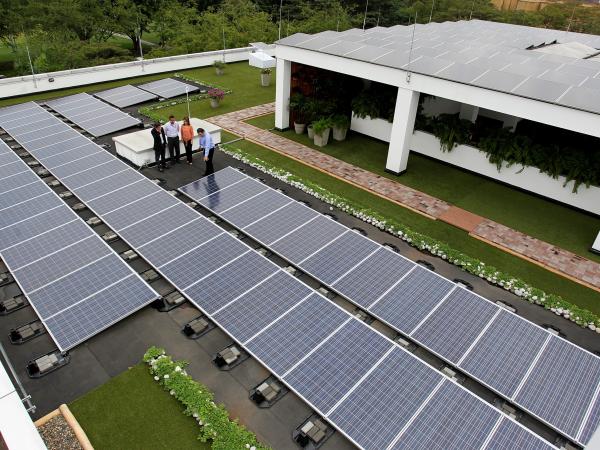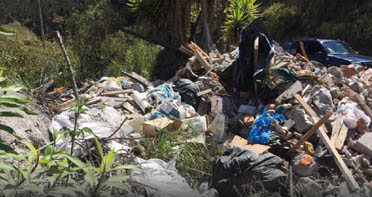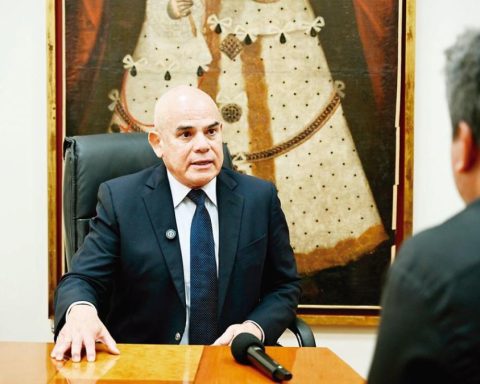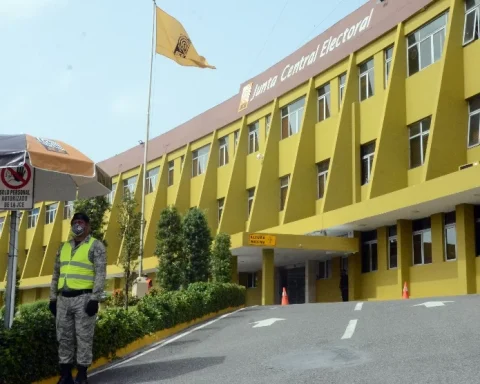A rule issued in June 2021 by the Commission for the Regulation of Energy and Gas (Creg), it would delay the development and/or entry into operation of several non-conventional renewable energy projects, more so in the country’s Caribbean coast region.
(Air-e guarantees renewable energy with four international firms).
This is resolution 075 of June 2021, in whose articles the rules associated with the new connection procedurethe obligations subsequent to the approval of this (capacity allocation) and the conditions of the transition period for non-conventional clean energy source projects that already had an approved connection, and for those who had their connection request in process.
However, for developers of renewable non-conventional electricity projects, the Creg standard not only changes the rules of the game with a new regulation, but also unaware of the strict order of waiting for connection authorizations “vital” solar photovoltaic and wind projects, especially in the northern region of the country.
(Renewables: for every US$20 in Latam, US$1 went to Colombia).
“The resolution transformed the methodology and now everything is in the hands of the Mining and Energy Planning Unit (Upme). And this entity has been canceling all projects since last December 31 with the argument that there is no connection capacity. Even if the regional network operators affirm that there is one to make the connection, the entity says no”, said Iván Martínez, president of EGAL.
The business leader stressed that, despite the fact that the projects underway meet the legal and technical requirements, and that the regional energy network houses the interconnection capacity, new regulations require them, “in a lack of knowledge of the business reasons long-term, that they enter the queue again, from scratch, as if they had just arrived”.
“Non-conventional renewable energy projects, such as solar, which were well advanced in their development, now with Creg resolution 075, they have to wait in line again, not knowing the process and the execution schedules, but there is also a great capacity of connection for these plants throughout the country ready to be used, but the Upme will grant it again, without taking into account the established order, “Martínez stressed.
When inquiring with Upme, its director Christian Jaramillo explained that unfortunately, the connection procedure, with the rules in force before resolution 075, implied that the evaluation be carried out in order of arrival, without prioritizing according to the benefit that the connection would bring to the system, for example through firm energy commitments or other obligation with the system, nor according to the degree of progress; In addition, there were no sufficiently strong instruments to guarantee that, once the connection was approved, the projects would enter on the scheduled dates.
“Regulatory breaches were frequent and it was possible to request unlimited deferrals,” said the official.
(Direct sale, an alternative in renewables).
Jaramillo reiterated that the standard brings a transition period for renewable projects with approved connection (assigned capacity) and had their condition regularized in terms of the date of entry into operation, as well as the guarantee, “with which they would maintain their right without modifications”, but those who did not have these conditions regularized had to do so: ” adjust the date of entry into operation and constitute a more demanding guarantee of compliance”.
Likewise, the new norm established that those who were in an irregular situation and were not regularized, would lose the assigned transport capacity and it should be released so that it could be assigned under the new delivery procedure.
“Projects that had assigned capacity before the promulgation of resolution 075 had to update the format of their guarantee if they already had it, or constitute guarantees if they did not have them; they also had to update the Date of Entry into Operation (FPO) if it was expired”, said the director of Upme.
The official added that, with the fulfillment of these requirements, “added to the presentation of the S curve”, it allows the owner of the project to maintain the assigned capacity. “That is, those initiatives that were in a regular situation, and that had adequate guarantees and did not present arrears against their FPO with a cutoff date of October 21, 2021, can maintain their connection right,” he said.
ALFONSO LOPEZ SUAREZ
BRIEFCASE

















